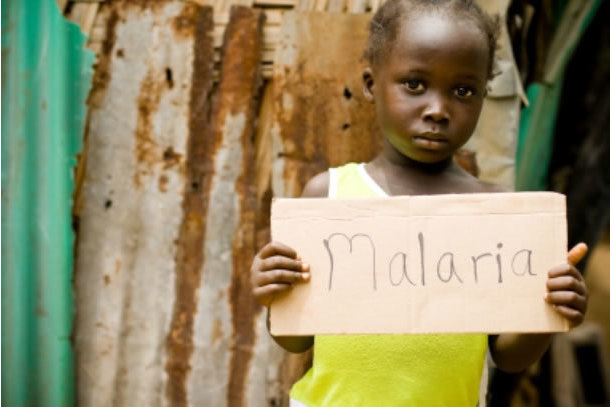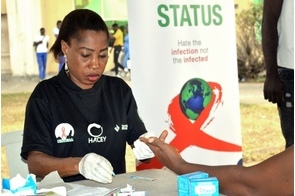WHO launches world’s first malaria vaccine in Malawi

Summary
The RTS,S is the first, and so far the only, vaccine to show it can significantly reduce malaria in children.
The World Health Organisation (WHO), in collaboration with various partners, has launched the world’s first malaria vaccine in a pilot phase in Malawi. Known as RTS,S, the vaccine will be introduced in the coming weeks in Ghana and Kenya, and made available to children up to two years of age.
Malaria remains one of the world’s leading killers, claiming the life of one child every two minutes. Most of these deaths are in Africa, where more than 250,000 children die from the disease every year, according to WHO. Children under the age of five are at the greatest risk of life-threatening complications due to malaria. Worldwide, malaria kills 435,000 people in a year.
The three pilot countries were selected from among 10 African countries that expressed interest in the programme, according to WHO. Key criteria for selection in the pilot phase included well-functioning malaria and immunization programmes and areas with moderate to high malaria transmission.
The pilot programme is being implemented in collaboration with the ministries of health in Ghana, Kenya and Malawi, and a range of international partners, including PATH – an international non-profit health organisation, and GlaxoSmithKline (GSK) – the vaccine manufacturer. GSK is donating up to 10 million vaccine doses for the pilot programme.
“Delivering the world’s first malaria vaccine will help reduce the burden of one of the most pressing health challenges globally. This novel tool is the result of GSK employees collaborating with their partners, applying the latest in vaccine science to contribute to the fight against malaria,” said Thomas Breuer, Chief Medical Officer of GSK Vaccines. “We look forward to seeing the results of the pilot, and in parallel, [we] are working with WHO and PATH to secure the vaccine’s sustained global health impact in the future.”
According to WHO, RTS,S is the first, and so far the only, vaccine to show it can significantly reduce malaria in children. During clinical trials, the vaccine was found to prevent approximately four in 10 cases of clinical malaria, three in 10 cases of severe malaria, and six in 10 cases of severe malaria anaemia – the most common reason children die from malaria.
Mobilizing funding for the pilot programme has been done through the collaboration of Gavi, the Vaccine Alliance; the Global Fund to Fight AIDS, Tuberculosis and Malaria; and Unitaid. PATH, GSK and WHO are also providing in-kind contributions.
“We have seen tremendous gains from bed nets and other measures to control malaria in the last 15 years, but progress has stalled and even reversed in some areas,” Tedros Adhanom Ghebreyesus, Director-General of WHO, said. “We need new solutions to get the malaria response back on track, and this vaccine gives us a promising tool to get there.”
Related
-
Plant-based diet as healthy substitute for red meat
The surest way to correct the health problems caused by diet is through diet itself.
-
Coalition writes Buhari on investment in healthcare
The group said healthcare is the foundation of national security, economic growth and recovery plan.
-
Access Bank sustains support for HIV/AIDs, NTDs interventions during Lagos marathon
Participants at the Access Bank's week-long Marathon Expo were also educated on NTDs, which also constitute a major public ...








